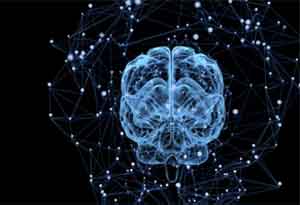- Home
- Editorial
- News
- Practice Guidelines
- Anesthesiology Guidelines
- Cancer Guidelines
- Cardiac Sciences Guidelines
- Critical Care Guidelines
- Dentistry Guidelines
- Dermatology Guidelines
- Diabetes and Endo Guidelines
- Diagnostics Guidelines
- ENT Guidelines
- Featured Practice Guidelines
- Gastroenterology Guidelines
- Geriatrics Guidelines
- Medicine Guidelines
- Nephrology Guidelines
- Neurosciences Guidelines
- Obs and Gynae Guidelines
- Ophthalmology Guidelines
- Orthopaedics Guidelines
- Paediatrics Guidelines
- Psychiatry Guidelines
- Pulmonology Guidelines
- Radiology Guidelines
- Surgery Guidelines
- Urology Guidelines
Just 4,000 Steps a Day to Better Brain Health

Walking more than 4,000 steps a day can improve attention and mental skills in adults ages 60 and older, according to UCLA research published December 12 in a reprint edition of the Journal of Alzheimer’s Disease.
Various studies have found that physical activity is important in preventing cognitive decline and dementia in older adults. Cognitive decline occurs when people start having difficulty reasoning, processing, and remembering.
Brain volume and brain thickness — both measured by neuroimaging methods — are different ways of quantifying the health of the brain. Previous research shows physical activity correlates with higher volume in the hippocampus, a small, memory-critical region deep within the brain.
“Few studies have looked at how physical activity affects the thickness of brain structures,” said Prabha Siddarth, the study’s first author and a biostatistician at the Semel Institute for Neuroscience and Human Behavior. “Brain thickness, a more sensitive measure than volume, can track subtle changes in the brain earlier than volume and can independently predict cognition, so this is an important question.”
During the two-year study, researchers recruited 29 people ages 60 and above with memory complaints. Researchers tracked their physical activity for seven days using accelerometers, a device that measures movement, and determined their average number of steps per day.
Study participants were divided into one of two groups: those who walked more than 4,000 steps a day and those who walked fewer steps. The participants underwent a battery of neuropsychological tests and MRI scanning.
People who walked more than 4,000 steps each day had a thicker hippocampus and thicker surrounding regions than those who walked less than 4,000 steps. Thickness in these regions correlates with better cognitive function. The more active group also had superior performance in attention and information-processing speed as well as executive functioning, a set of mental skills that allow people to make plans and achieve goals.
Lower physical activity correlated with thinner brain structures and lower cognitive functioning.The researchers said future studies will track participants over a longer period in an effort to better understand the causes of thinning of the hippocampus.
In addition to Siddarth, the paper’s other authors are Berna Rahi, Natacha Emerson, Alison Burggren, Karen Miller, Susan Bookheimer, Helen Lavretsky, Bruce Dobkin, Gary Small and David Merrill, all of UCLA.
The study was supported by the McLoughlin Cognitive Health Gift Fund, the National Institutes of Health, the Fran and Ray Stark Foundation Fund, the American Federation for Aging Research, the Hartford Foundation, the UCLA Clinical and Translational Science Institute and the National Institute on Aging’s Older Americans Independence Centers.

Disclaimer: This site is primarily intended for healthcare professionals. Any content/information on this website does not replace the advice of medical and/or health professionals and should not be construed as medical/diagnostic advice/endorsement or prescription. Use of this site is subject to our terms of use, privacy policy, advertisement policy. © 2020 Minerva Medical Treatment Pvt Ltd